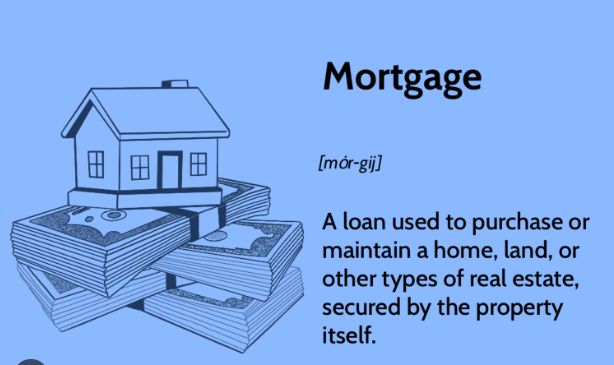Gather information on current interest rates and mortgage market trends to support your negotiation. Strengthen your credit profile by paying bills on time, reducing debt, and addressing any errors on your credit report.
Obtain quotes from multiple lenders and use them as leverage to negotiate a better rate.

Research Current Interest Rates and Market Trends
Researching current interest rates and market trends is a crucial step in negotiating a lower interest rate on your mortgage. Here’s how to go about it:
- Stay Informed: Keep yourself updated on the latest news and developments in the mortgage market. Follow financial websites, news outlets, and reputable sources that provide information on interest rate movements and market trends.
- Monitor Rate Indices: Track key interest rate indices, such as the prime rate or the 10-year Treasury yield, which can influence mortgage rates. Understanding these benchmarks can give you insights into the direction of interest rates.
- Utilize Online Tools: Take advantage of online resources that provide real-time mortgage rate data and allow you to compare rates offered by different lenders. These tools can help you gauge the prevailing rates in your area.
- Consult with Mortgage Professionals: Speak to mortgage brokers or loan officers who specialize in mortgage lending. They have access to up-to-date rate information and can provide guidance on current market conditions.
By researching current interest rates and market trends, you can enter mortgage rate negotiations armed with knowledge and position yourself to secure a lower interest rate on your mortgage.
Improve Your Credit Score
Improving your credit score is a crucial step in negotiating a lower interest rate on your mortgage. Lenders often consider credit scores as a key factor in determining the interest rate they offer. Here’s how to improve your credit score:
- Check Your Credit Report: Obtain a copy of your credit report from the major credit bureaus and review it for errors or discrepancies. Dispute any inaccuracies and ensure your report reflects accurate information.
- Pay Bills on Time: Consistently pay your bills, including credit cards, loans, and utilities, on time. Late payments can have a negative impact on your credit score.
- Reduce Credit Card Balances: Aim to keep your credit card balances low, ideally below 30% of your available credit limit. Paying down existing debt can positively impact your credit score.
- Avoid Opening New Credit Accounts: Limit opening new credit accounts or taking on additional debt, as this can negatively affect your credit score.
- Lengthen Credit History: Maintain older credit accounts, as a longer credit history can demonstrate responsible borrowing behavior.
- Diversify Credit Mix: Have a mix of different types of credit, such as credit cards, auto loans, or student loans. This shows lenders that you can manage various types of credit responsibly.
Improving your credit score takes time and discipline, but it can lead to better mortgage offers and lower interest rates.
Comparison Shop and Gather Multiple Quotes
Comparison shopping and gathering multiple quotes is an important step in negotiating a lower interest rate on your mortgage. Here’s how to go about it:
- Research Lenders: Identify reputable lenders in your area or explore online mortgage platforms. Look for lenders with a history of competitive rates and favorable customer reviews.
- Obtain Loan Estimates: Reach out to multiple lenders and request loan estimates. Provide them with the necessary information, such as your credit score, down payment amount, and desired loan term.
- Compare Interest Rates: Review the loan estimates and compare the interest rates offered by each lender. Consider both fixed-rate and adjustable-rate mortgage options, and take note of any rate-lock policies.
- Consider Closing Costs: Pay attention to the estimated closing costs provided by each lender. These costs can vary significantly, so take them into account when comparing the overall affordability of each loan.
- Evaluate Loan Terms: Look beyond the interest rate and consider other loan terms, such as the loan duration, monthly payment, and any prepayment penalties or restrictions.
- Negotiate: Armed with multiple quotes, you can negotiate with lenders to secure a better interest rate. Use the quotes from other lenders as leverage during the negotiation process.
By comparing multiple quotes, you gain a better understanding of the available options and can identify lenders offering more competitive rates. This allows you to negotiate effectively and potentially secure a lower interest rate on your mortgage.
Provide Supporting Documentation
When negotiating a lower interest rate on your mortgage, providing supporting documentation can strengthen your case and improve your chances of success. Here’s what you should consider:
- Proof of Income: Gather documents such as pay stubs, tax returns, and bank statements to demonstrate a stable and sufficient income. Lenders want to ensure you have the financial capacity to repay the mortgage.
- Employment Verification: Provide employment verification letters or contact information for your employer to confirm your current job status and stability.
- Good Credit History: Compile documentation that showcases your positive credit history, such as credit reports, payment records, and evidence of responsible credit management.
- Debt-to-Income Ratio: Calculate and provide supporting documents to demonstrate a healthy debt-to-income ratio. This can include information on existing debts, such as credit cards, loans, or other obligations.
- Savings and Assets: Document your savings and assets, such as bank account statements, investment accounts, and property ownership, to exhibit financial stability and reserves.
By providing comprehensive and accurate supporting documentation, you present a strong case to lenders, showcasing your financial stability and creditworthiness. This can enhance your negotiating position and potentially lead to a lower interest rate on your mortgage.
Seek Assistance from a Mortgage Broker or Professional
Seeking assistance from a mortgage broker or professional can be beneficial when negotiating a lower interest rate on your mortgage. Here’s why:
- Expert Knowledge: Mortgage brokers and professionals have in-depth knowledge of the mortgage industry. They understand interest rates, lender policies, and the negotiation process, which can help you navigate the complexities of obtaining a favorable rate.
- Access to Multiple Lenders: Mortgage brokers have access to a network of lenders, including banks, credit unions, and private lenders. They can shop around on your behalf, gathering multiple quotes from different lenders to compare and negotiate.
- Personalized Guidance: Mortgage professionals can provide personalized guidance based on your unique financial situation and goals. They can help you understand the various loan options available and recommend the most suitable mortgage products.
- Negotiation Skills: Mortgage brokers are experienced negotiators. They know how to present your financial profile in the most favorable light and negotiate with lenders to secure competitive interest rates and terms.
- Time and Effort Savings: Engaging a mortgage professional saves you time and effort. They handle the paperwork, communication with lenders, and can expedite the loan application process.
By seeking assistance from a mortgage broker or professional, you can benefit from their industry knowledge, negotiation skills, and access to a wide range of lenders, increasing your chances of securing a lower interest rate on your mortgage.






